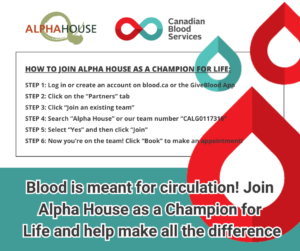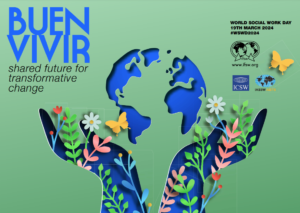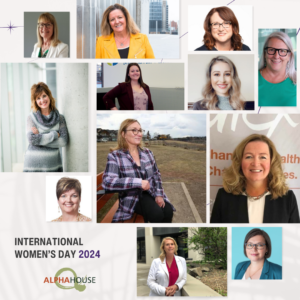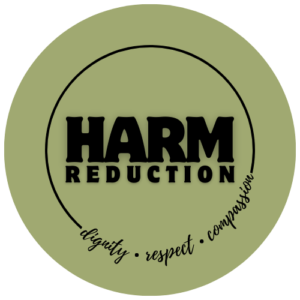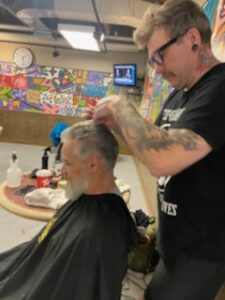Ecological Responsibility – Earth Day 2024
Shaundra Bruvall | April 22, 2024
Happy Earth Day! First started in 1970, April 22 marks the 54th annual earth day! In today’s short blog post, we wanted to talk about the challenges of being environmentally conscious while being unhoused, and to share a bit about how Alpha House works to reduce our environmental footprint.
In the conversation about encampments, we hear a lot from some community members about how unhoused encampments leave behind debris. The most common refrain we hear is that they create a lot of waste and, not only is this an ‘eyesore,’ ‘gross,’ and ‘a major problem,’ it is also an environmental issue. We aren’t here to make excuses for litter or inappropriate waste but we do want to shed some light on a hypocrisy that exists when we talk about waste left behind from people experiencing homelessness. We make garbage and waste too; theirs is just more visible than ours – and the reason it’s more visible isn’t their fault at all.
Each individual household is responsible for a significant amount of waste; the difference for households, however, is that most households in North America have access to convenient ways to dispose of their waste that typically require minimal effort on the part of the individual. Unhoused individuals main way of disposing of waste is public garbage bins – not always conveniently located, not a solution to human waste, and not easily utilized without also having ongoing access to garbage bags. It might sound fairly inconsequential at first, but imagine if EVERY TIME you needed to dispose of a single piece of garbage— instead of disposing of it in a garbage bag in a bin in the next room, you had to walk an unknown distance to the nearest garbage bin. Or, imagine that EACH TIME the garbage bag in your kitchen was full, you didn’t just have to take it out back to a black or green bin that you never thought about again because Residential waste services picked it up every 1-2 weeks, you had to hump it to that far away garbage bin. Imagine if instead of purchasing a 100 pack of garbage bags at the store to last you a few weeks/months, you had to keep reusing the same soiled bag over and over.
The reality of homelessness is often far more complex than we like to think about. A common response to talking about these complications is for people to offer solutions: “It’s really easy to do ‘X’ and then the problem wouldn’t happen,” “If they just did ‘Y’ then they wouldn’t have to think about that issue,” or “It’s not hard to insert something that may not be hard but is not something top of mind when you’re homeless.”
With the frequency in which every one of us disposes of waste on a daily basis, we can see the barrier that exists for unhoused individuals to responsibly dispose of their waste regularly, and how it can quickly become unmanageable when compounded with other challenges like addictions, tri-morbidities, and/or mental health. The reality is that ecological responsibility is not a burden that can always be shared equally. It doesn’t mean we excuse poor environmental actions, it means we do the best we can until we have the means to do better, and then we do better.
How is Alpha House working on reducing our impact on the environment?
- Planning a community cleanup? Our Needle Response Team would love to be a part of it! Reach out to [email protected] for more information
- Speaking of community cleanups, we’ve hosted a number of community cleanups over the past couple of years to reduce waste in the communities that we serve and have several more on the docket this spring/summer
- We partner with SkipTheDepot to dispose of all of our bottle recycling
- We partner with SkipTheDepot to help us recycle textiles that we can’t use, like damaged clothing we can’t distribute to our clients
- We partner with the City of Calgary as a designated drop-off location for reusable shopping bags, which we distribute to clients to help them carry their belongings
Visit the official page for Earth Day 2024 to learn more about the environmental crisis our planet is facing and to find Earth Day focused events near you.
